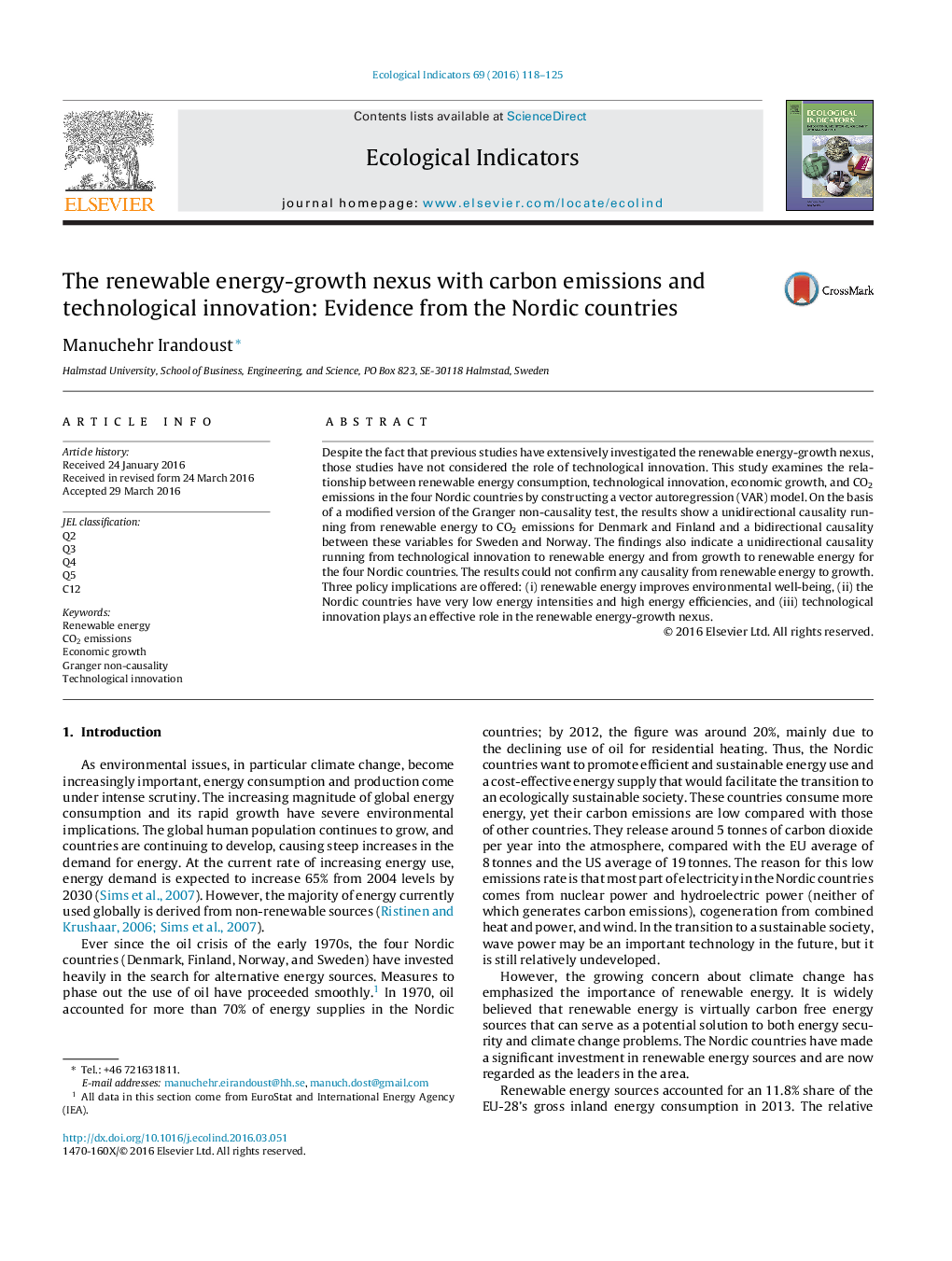| Article ID | Journal | Published Year | Pages | File Type |
|---|---|---|---|---|
| 6293199 | Ecological Indicators | 2016 | 8 Pages |
Abstract
Despite the fact that previous studies have extensively investigated the renewable energy-growth nexus, those studies have not considered the role of technological innovation. This study examines the relationship between renewable energy consumption, technological innovation, economic growth, and CO2 emissions in the four Nordic countries by constructing a vector autoregression (VAR) model. On the basis of a modified version of the Granger non-causality test, the results show a unidirectional causality running from renewable energy to CO2 emissions for Denmark and Finland and a bidirectional causality between these variables for Sweden and Norway. The findings also indicate a unidirectional causality running from technological innovation to renewable energy and from growth to renewable energy for the four Nordic countries. The results could not confirm any causality from renewable energy to growth. Three policy implications are offered: (i) renewable energy improves environmental well-being, (ii) the Nordic countries have very low energy intensities and high energy efficiencies, and (iii) technological innovation plays an effective role in the renewable energy-growth nexus.
Keywords
Related Topics
Life Sciences
Agricultural and Biological Sciences
Ecology, Evolution, Behavior and Systematics
Authors
Manuchehr Irandoust,
